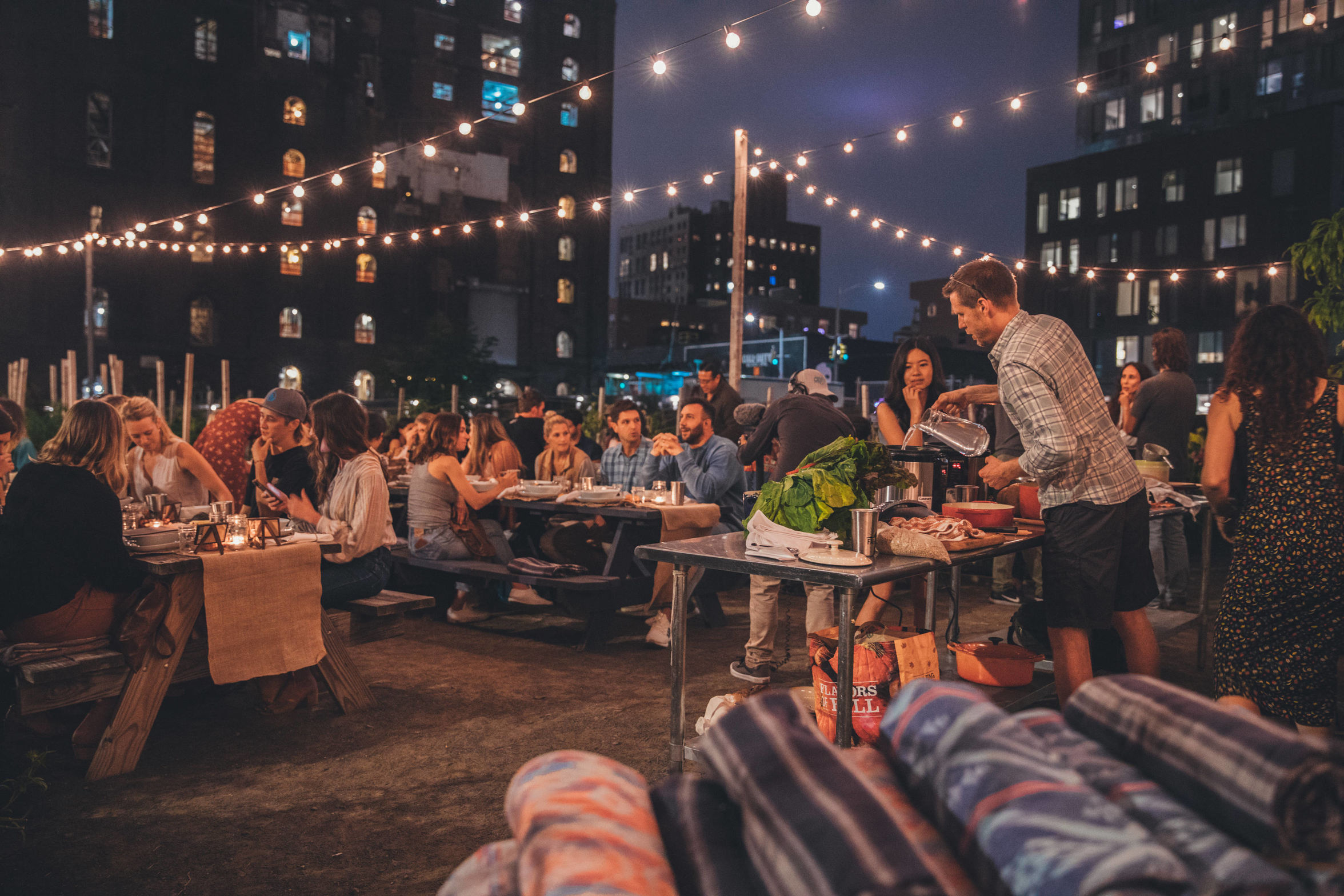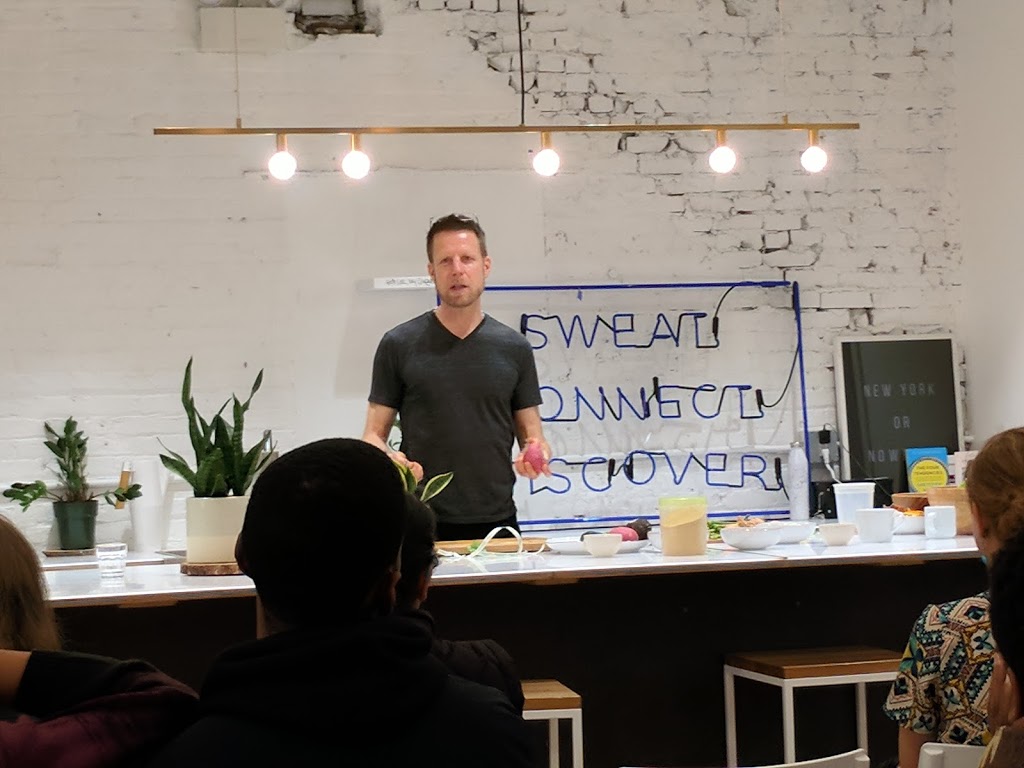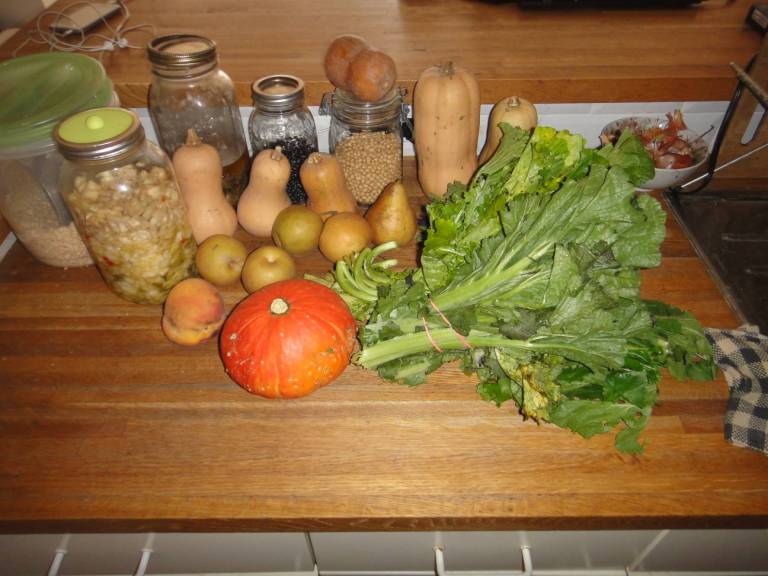I last emptied my household garbage in September 2018.
The time before that, June 2017.
Yes, I took 16 months to fill one load of garbage, and a small load — one canvas tote bag full. I don’t need to use plastic bags because everything wet or that rots I compost.
When I said those dates in my last TEDx talk, the crowd woke up. I could hear people saying, “What?”, “Really?”, “How is that possible?” Afterward, people asked how I did it.
Specific details for eliminating the biggest sources of garbage — food packaging — are all over the internet, so I won’t repeat what others have said better, though I’ll recommend Bea Johnson‘s work on minimizing waste and Joshua Becker’s on minimizing stuff. I liked their work enough to host them as guests on my podcast.
Here’s a video I made when I crossed my first year without filling a load.
I’ll share what would have worked for me, but that I never heard from anyone. Because if anyone had told me to follow all the tips I’d heard, I wouldn’t have believed I could do it, so I wouldn’t have tried.
What worked for me wasn’t the tips to replace toothpaste or shampoo. While helpful, they were external. They’d help me reduce garbage here or there, but not reduction of more than fifty times (I used to empty my garbage weekly).
What worked was finding that I liked my life after I started changing more than before. I had to feel the benefit. I challenged myself to go a week without buying packaged food. Frankly, when I came up with the challenge, I didn’t know how to make it so I didn’t expect I could.
For six months after conceiving the idea, I didn’t act. I analyzed and planned, but didn’t start the week.
So what really worked was one day seeing that a rational, planned approach was delaying, not starting. The day, I said to myself, “I’m not going to die if I go a week on just fruits and vegetables. I’m starting here and now.”

Then I started doing what I had intellectually known I could have done all along but never did. For example, I knew I could boil beans bought in bulk in a reusable bag I brought on the stove, but I never had to until that week.
They tasted great! I learned. But my learning didn’t stop there. That new experience led me to try cooking beans in my rice cooker. They tasted just as great, and relieved me of tending the pot, reducing my preparation time to a few minutes. It didn’t take long for my curiosity about pressure cookers to lead me to buy one (pre-owned though never used, half price from Craig’s List).
Holy cow! The pressure cooker reduced my total cooking time from about an hour to under ten minutes for lentils and split peas and not much more for most other legumes.
I should mention, despite not expecting to make one week, I made two-and-a-half before buying something packaged. I learned enough that I continued minimizing packaging, learning here and there. The pressure cooker discovery meant buying legumes only unpackaged from the bulk section — often under $2/pound.
I put into practice countless other tips I’d heard before but never tried until I forced myself to, however arbitrary my one-week experiment. Over a few months, I switched to buying from farmers markets and farm shares almost exclusively, buying in season, fermenting foods, and so on.

I didn’t need someone telling me what to do or even what I could do. I needed to act, even when I saw no point in it. If anyone out there is wondering if they can do it, if you’re like me, the answer is you can and the way to do it is to start. My plan of trying a week without buying any packaged food (I allowed myself to finish food in my cupboards, though I exhausted it) worked for me, so if you can’t think of a better experiment, I recommend it.
The Delicious Results
#1: Food tastes better!
It’s cheaper too, when I learned to buy in season and in bulk. I learned that eating healthy or naturally doesn’t cost more or take longer. Not knowing how to cook does!
Don’t believe me. I’ve asked friends to review my famous no-packaging vegetable stews. Read the reviews here, keeping in mind, I’d never cooked from scratch before about five years ago and never took a cooking class. I’m only combining vegetables, legumes, fruit, and such the way that seems interesting to my palate. I’m just exploring.
#2: Unpackaged creates community.
Buying from farmers markets and farm shares means meeting my farmers. I visit their farm. Here are pictures from my first visit. It means meeting the entrepreneurs starting new models. Here are the organizations I buy from near me. Everyone I’ve talked to who has tried has found similar ones near them.
Buying in season often leads to me having so much of a food at peak ripeness (collard greens and kale this week), I have to invite people over more. I’ve probably hosted 20 meals in the past three weeks.
#3 You learn more about food
Every time I encounter a food for the first time I look it up. I feared buying at farmers markets before, since I could only identify about 10% of their produce, meaning 90% mystery. Now I know 90% so the 10% unknown means curiosity and novelty. Recently I’ve experimented with burdock leaves (loved!) and stinging nettles (once was enough for me).
Learning means discovering flavors, textures, and how they combine. It also means, just from looking them up on Wikipedia, learning a food’s cultural background, evolutionary history, family tree, and so on.
Food connects to everything.
#4 Unpackaged food means eating to greater satisfaction
Which do you prefer, more calories or feeling more full? More sugar or tasting more sweetness? More salt or more flavor? Cooking from scratch has led me to feeling more full after every meal, tasting more sweetness, and more flavor despite eating fewer calories, less sugar, and less salt.
How? In my experience, cooking from scratch meant more nutritious food — more protein, fiber, and what makes me feel full. Not eating sweets or adding sweeteners gave my taste buds time to recover from what now feels like sickly sweetness of ice cream or other packaged food despite having had a tub in my freezer nearly nonstop for most of my adulthood. Similarly with salt.

In sum, before trying, I knew many tactics to reduce waste, but didn’t know what worked most for me: results like the four I mentioned and just trying.
If you’ve wanted to act but didn’t see how, maybe you’re like me. If so, I wrote these results for you. Let me know how they work for you.


